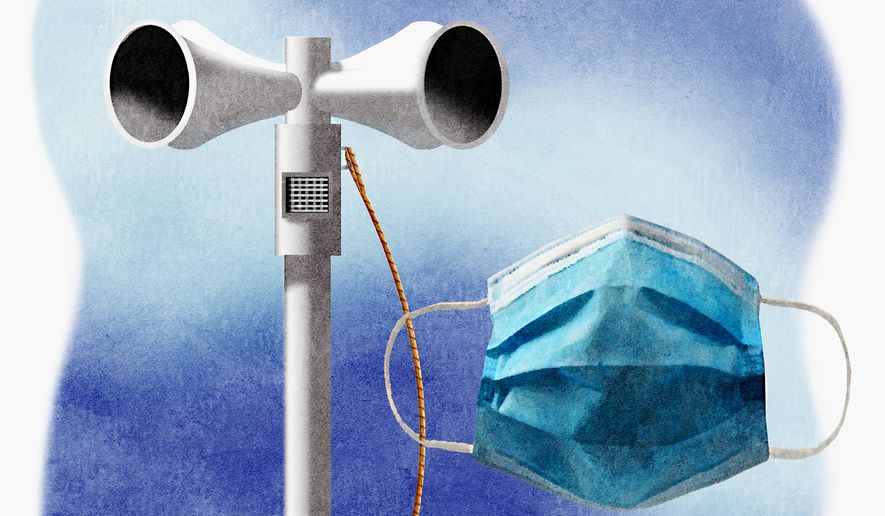OPINION:
Four years have passed since the fateful decision to shut down the nation over the virus that emerged from Wuhan, China. Uncertainty about the disease back then contributed to widespread fear that locked millions of worshippers out of their churches on Easter Sunday.
Now that things have mostly returned to normal, the Committee to Unleash Prosperity took the opportunity to reappraise what happened. Released last week, the group’s report concluded, “Lockdowns, school closures, and mandates were catastrophic errors, pushed with remarkable fervor by public health authorities at all levels.”
From the start, pandemic models crafted by Imperial College London researchers foretold up to 2.2 million deaths from the spread of the deadly plague — a staggering total that set state capitols and the White House into a frenzy. The models weren’t even close to accurate.
White House Coronavirus Task Force member Scott Atlas and committee President Phil Kerpen joined economists Steve Hanke and Casey Mulligan in calculating the effect lockdowns had on health outcomes. They found no measurable benefit in the states most zealous in barring the public from churches, schools and the workplace.
As a consequence of the deep social isolation these policies created, non-COVID deaths rose sharply. Individuals failed to seek treatment for treatable illnesses that grew more serious from neglect. In addition to this, the American Psychological Association reported the average adult gained 29 pounds from being forced into a sedentary lifestyle, feeding the nation’s already immoderate obesity rate.
Children were the most scarred by having their lives turned upside down. With schools closed and no way to see friends outside of a phone or computer screen, loneliness thrived. Recorded suicide attempts, anxiety diagnoses and substance abuse cases all rose to record levels. Yet it was known all along that this particular virus targeted the old and the infirm, not young people. Teachers unions nonetheless led the successful charge to isolate children — with predictable results.
Student performance took a nosedive on the National Assessment of Educational Progress, with minority school districts reporting the steepest declines. An entire generation lost these formative years for no good reason, and the consequences will continue to be felt for decades to come.
Those who questioned the school shutdowns, mask usage and vaccine mandates were immediately blackballed by Big Tech companies such as Twitter, Facebook and YouTube. Leading medical experts were gagged, despite the truth of what they were trying to say. Dr. Atlas, for instance, was censored for saying that masks can’t stop the spread of a virus, which Dr. Anthony Fauci had also said until he realized he needed to pretend otherwise.
This lack of open debate about public policy choices led to many unfortunate choices. The Committee to Unleash Prosperity’s report suggests we take inspiration from the handful of countries that refused to succumb to the mania that swept the globe.
“Sweden combined low excess death rates with relatively small economic costs,” the authors stated. “In future pandemics, policymakers should rely on empirical evidence rather than panicking and adopting extreme measures.”
As the group suggests, Congress should codify these lessons by placing a strict definition on “public health emergency” that stops politicians from setting aside constitutional rights in the name of public safety.




Please read our comment policy before commenting.